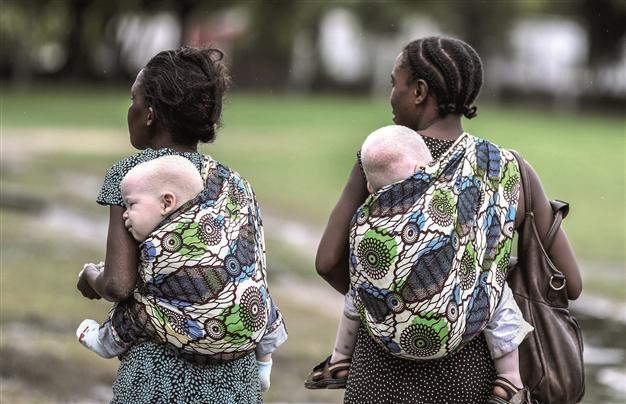Turkey intensifies efforts for UN Security Council bid
ANKARA
 An ongoing humanitarian tragedy in Tanzania is now an item on a long and diverse list of Turkey’s foreign policy priorities as the country’s hectic efforts to become a non-permanent member of the U.N. Security Council have become more visible ahead of a key vote in October.
An ongoing humanitarian tragedy in Tanzania is now an item on a long and diverse list of Turkey’s foreign policy priorities as the country’s hectic efforts to become a non-permanent member of the U.N. Security Council have become more visible ahead of a key vote in October.During a May 30 press conference in Dar es Salaam, Turkish Foreign Minister Ahmet Davutoğlu touched upon the killings of Albinos whose body parts are prized by witch doctors.
“Albinos are in our hearts. It is a primary duty for us to help them. Against society’s pressure on Albinos and their exclusion as a result of incorrect beliefs, Turkey will found a complex for Albinos in Tanzania,” Davutoğlu was quoted as saying by the Anadolu Agency, as he emphasized how protecting Albinos is a humane mission.
The messages delivered by Davutoğlu are also in harmony with Ankara’s candidacy for the U.N. Security Council membership for the period 2015-2016 since it says it is willing to hold that seat only after a few years’ hiatus because of its “desire to serve humanity and contribute to world peace and security.”
“Turkey’s overarching foreign policy vision also defines its views on the prospective Security Council membership. This vision aims to act along the lines of a modern approach that upholds respect for human rights with a view to balancing security and freedoms,” the Turkish Foreign Ministry said at the time.
Ankara declared its candidacy for the seat in May 2011.
In 2009 Turkey was elected to the council’s “Western European and Others” seat for 2009-2010, with 151 votes in the first round of voting. At the time, Austria followed Turkey with 132 votes, while Iceland received 87 votes.
For its 2009-2010 bid, Turkey announced its candidacy in July 2003.
Turkey’s assertive foreign policy centered on a desire to reach out to the four corners of the world and fly its flag in as many countries as possible has been the motivating factor for Davutoğlu to undertake a hectic schedule of visits to various countries.
Nonetheless, the willingness to become and remain a visible and global foreign policy player by holding a non-permanent seat at the U.S. Security Council – despite Ankara’s belief that it needs to be reformed – has become a key impulse for Turkey’s diversified bilateral relations. Evolving partnerships and mutual bilateral visits between Turkey and Caribbean and Pacific countries, in addition to African countries, are the best indicators of the strength of such an impulse.
As such, Davutoğlu’s hectic itinerary is not only an itinerary but also a draft roadmap on the way to the 2014 U.N. Security Council elections, which will be held in October 2014 during the 69th session of the United Nations General Assembly in New York.
This time, Turkey will be competing with New Zealand and Spain in “the Western European and Others Group.”
During the voting, rather than verbal pledges, winning signatures under mutual support agreements from more and more member countries will increase the chances of victory, although nothing can be assumed as guaranteed, according to Turkish officials.
“While announcing its candidacy with a desire to serve in the U.N. Security Council for a second time over a period of 50 years, Turkey has thoroughly assessed the best term suitable in offering its contributions to international peace, stability and security, and has taken its decision in light of this appraisal,” Turkey said at the time.
















